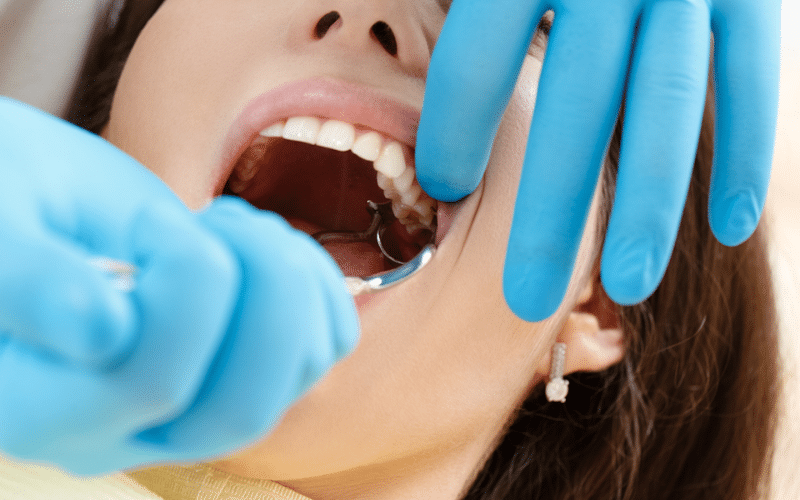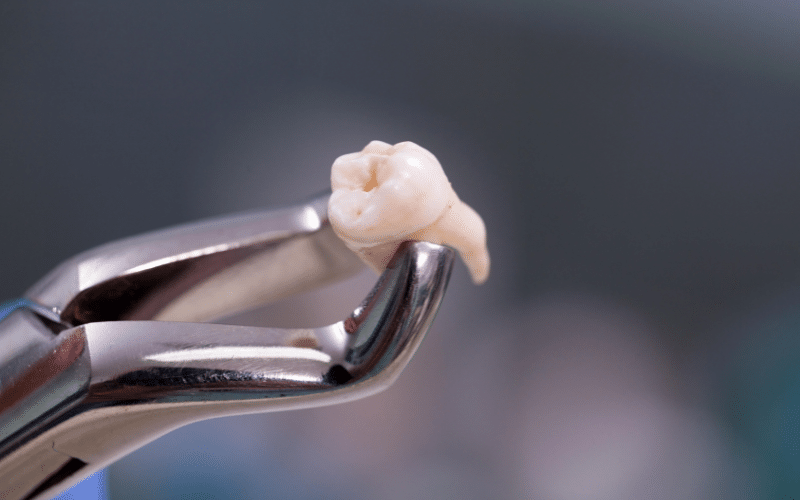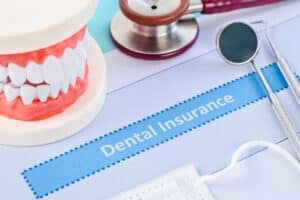Tooth extractions may sound intimidating, but they’re often necessary to protect oral health. Whether due to dental disease, injury, or preventive care, knowing why teeth might need removal can help you feel more prepared and understand the benefits. This blog breaks down the main reasons for tooth extractions, the different types, and what you can expect if an extraction becomes necessary.
Types of Tooth Extractions
- Simple Extractions: These are performed on visible teeth and usually quick & require minimal recovery.
- Surgical Extractions: For impacted or non-visible teeth, a surgical extraction may be needed, often involving small incisions and more recovery time.
1. Advanced Tooth Decay and Infection: When Removal Is Necessary
One of the most common reasons for tooth extractions is extensive tooth decay. When decay damages a tooth’s structure beyond repair, it becomes necessary to remove the affected tooth to prevent the spread of infection to surrounding teeth or gums.
- Unresolved Cavities: Cavities that progress without treatment can deteriorate the tooth’s structure.
- Root Canal Failure: Sometimes, a root canal doesn’t fully resolve an infection, leading to extraction.
- Abscesses and Infections: Infections that reach the tooth root can spread quickly, requiring immediate action to protect the rest of the mouth.
Tip: Routine check-ups and cleanings are your best defense against decay and infection.
2. Crowded Teeth & Orthodontic Preparation: Creating Space for Better Smile
In many cases, people undergo tooth extractions to improve alignment. Removing certain teeth helps create space, which allows orthodontic treatments like braces to work more effectively.
- Crowding: When teeth are too large for the mouth, removing one or two can make space and relieve overcrowding.
- Impacted Wisdom Teeth: The last molars to emerge, wisdom teeth often lack the space they need, leading to impaction, pain, and infection risks.
Note: Wisdom tooth extraction is one of the most common surgical extractions due to these common crowding issues.
3. Gum Disease & Bone Loss: Protecting The Health of Surrounding Teeth
Gum disease, or periodontal disease, is a leading cause of tooth loss, particularly in its advanced stages. If untreated, gum disease causes bone loss around the tooth, loosening it and potentially requiring extraction.
- Advanced Periodontitis: As the disease worsens, it affects the tissues and bones that hold teeth in place.
- Chronic Inflammation: This leads to tooth instability, and extraction may be the best option to prevent further bone loss.
Quick Tip: Practicing good oral hygiene can significantly reduce the risk of gum disease, lowering the likelihood of needing an extraction.
4. Injury and Trauma: When Accidents Lead To Extraction
Accidents or trauma from sports injuries, falls, or similar events can damage teeth. Sometimes the damage is too extensive for a tooth to be repaired, especially if the root is impacted.
- Fractured Teeth: If the break is severe, extraction might be necessary to prevent further complications.
- Root Damage: Damage that affects the tooth’s root can lead to infections and may require removal.
Preventive Tip: Wearing a mouthguard during sports and other physical activities can help protect teeth from injury.
5. Impacted or Problematic Wisdom Teeth: Pain Relief and Prevention
Wisdom teeth are notorious for causing issues if they don’t have enough space to grow in properly. Impacted wisdom teeth are trapped within the gums or jawbone, leading to discomfort and even infection.
- Partial Eruption: When wisdom teeth only partially emerge, they can create pockets where bacteria grow, increasing the risk of infection.
- Horizontal Impaction: If wisdom teeth are misaligned or grow sideways, they press against other teeth, causing pain and potential shifting.
Tip: Early wisdom teeth evaluations, usually in late teens or early twenties, can prevent complications and make extractions simpler if needed.
What To Expect During a Tooth Extraction Procedure?

Understanding what happens during an extraction can reduce anxiety about the procedure. Here’s a general overview:
- Examination and X-rays: The dentist will examine the area and take X-rays to assess the tooth’s position and root structure.
- Anesthesia: Depending on the complexity, either local or general anesthesia may be administered to ensure comfort.
- Removal: The dentist loosens the tooth with specialized tools. For surgical extractions, incisions and stitches might be involved.
- Aftercare Instructions: Aftercare includes managing swelling, using prescribed medications, and avoiding certain foods.
Aftercare Tip: Follow our dentist’s instructions closely to ensure a smooth, quick recovery.
Prevent Tooth Extractions With Simple Daily Practices for Oral Health
Preventing tooth extractions often starts with simple, everyday habits that keep your teeth strong and gums healthy. Here are some tips:
- Daily Brushing and Flossing: Twice-daily brushing and daily flossing are key to removing plaque, reducing the risk of gum disease, and preventing decay.
- Routine Dental Checkups: Visiting our dentist every 6 months helps catch any problems early.
- Healthy Diet Choices: Reduce sugary snacks and drinks, as they increase the risk of decay.
- Quit Smoking: Smoking weakens the gums, making them more susceptible to disease and decay.
Remember: A proactive approach to oral hygiene goes a long way in maintaining a healthy mouth and minimizing the risk of extractions.
Know When Tooth Extraction Is the Best Option!
While nobody wants to lose a tooth, extractions are often necessary for preserving oral health. By understanding the main reasons for tooth extractions—whether due to decay, gum disease, trauma, or crowding—you’re better equipped to make informed decisions and seek prompt treatment.
Adopting a strong oral care routine, attending regular check-ups, and addressing any issues early can reduce your risk of needing an extraction and keep your smile healthy for years to come.





